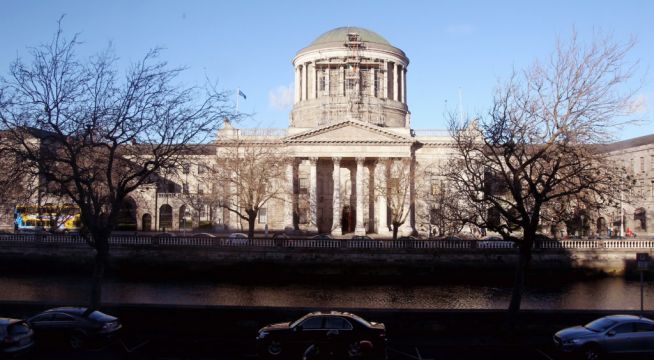The HSE is legally constrained in its ability to provide an emergency short-term placement for an autistic teenager who has spent 51 days in an emergency bed in hospital, the High Court has heard.
The 17-year-old girl is medically fit for release from the general hospital, but there will not be an appropriate residential placement for her for another 12 to 16 weeks, the court heard.
Ciaran Craven SC, instructed by KOD Lyons Solicitors, for the girl’s parents, is seeking declarations to vindicate and protect her constitutional rights which, he said, are being interfered with at present.
Previously, Dr Craven read from a report from an independent medical assessor who said the girl’s current situation was “remarkable in its bleakness” and “detrimental to her welfare and health”.
Significant distress
On Friday, counsel for the HSE, Shane Murphy SC, instructed by JD Scanlon & Company Solicitors, said the girl is a vulnerable young person who requires a high level of support.
She is presenting with paranoid beliefs and her agitations cause her significant distress, he said.
Mr Murphy said the health service has given “very careful consideration” to a long list of potential solutions for the girl, but no suitable placement is immediately available at a facility registered with the Health Information and Quality Authority (HIQA).
A “bespoke” autism-specific residency will be forthcoming in 12 to 16 weeks, with the lead-in time required to train specialist staff to meet the girl’s complex needs, he said.
The HSE was faced with a “very complicated” challenge in the interim, as the Health Act 2007 requires that any service it provides is registered with HIQA.
The HSE “does not have the statutory powers” to provide an emergency response, and it has “no control” over the timing lag, said Mr Murphy.
He said monetary resources are not an issue in this case, but there are chronic staff shortages across the health service and the bespoke nature of the girl’s requirements “creates the difficulty”.
Emergency solution
Mr Murphy argued that Tusla, the Child and Family Agency, has the power and experience to provide an emergency temporary solution.
The powers vested in Tusla are greater than the HSE’s when confronted with a need for an emergency short-term intervention, he said.
Barrister Mary Phelan, for Tusla, a notice party, said the agency has “worked strenuously” and will continue to engage with the HSE to try to find a solution for the child.

However, the provision of disability and mental health services falls “very clearly” under the jurisdiction of the HSE, she said.
Ms Phelan said there were no grounds to seek a care order for the child, which had been raised as a potential solution by the HSE’s counsel.
Detention of the girl under a special care order would be “extreme” and “completely unnecessary”, as there has been no parental failure or child protection concerns in this case, she said.
Mr Justice Max Barrett, who said the case struck him as “particularly sad”, said he would be inclined to grant one or more of the reliefs sought but would reserve his judgement until Monday.







